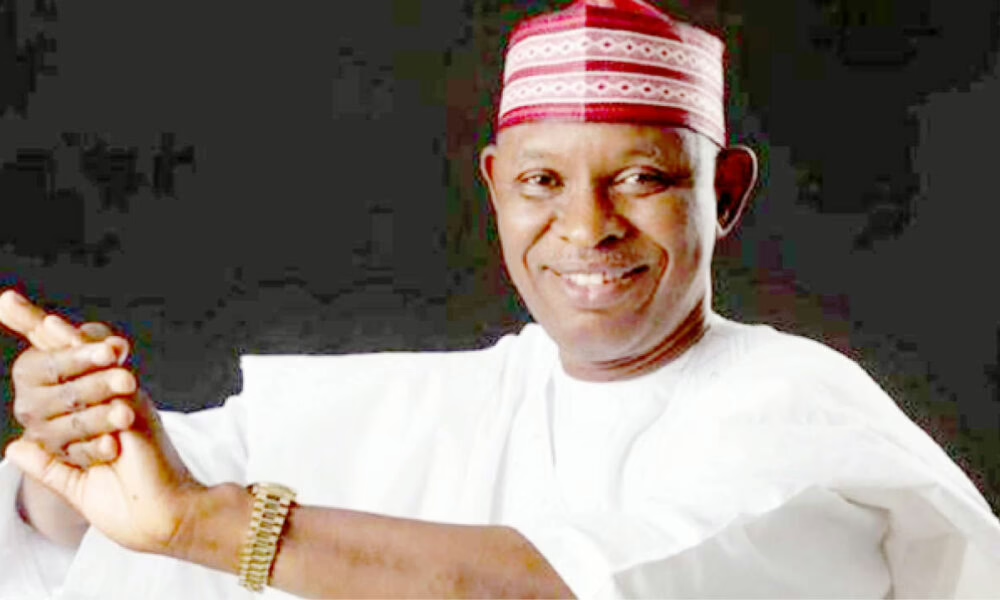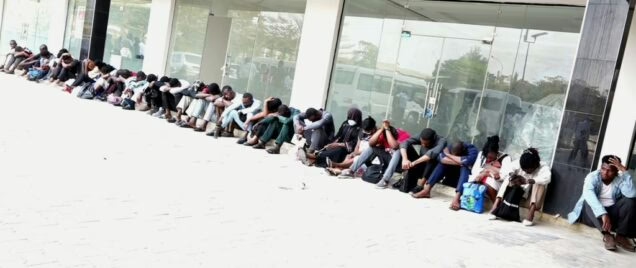From Fred Ezeh, Abuja
United Nations Children Fund (UNICEF) said on Thursday, that there are 556,750 children in Kano, Jigawa and Katsina states who have not received a single dose of vaccination (zero-dose) in their life.
It said that such zero-dose community is dangerous to the health of the community (herd immunity) as they can be the gateway to outbreak of communicable diseases such as polio, diphtheria, measles and several other vaccine-preventable diseases.
UNICEF made reference to diphtheria outbreak in Kano state last year and outbreak of similar communicable diseases in neighbouring states among thousands of children of five to 14 years who are mostly from the zero-dose children community.
Michael Banda, Officer-in-Charge, UNICEF Field Office Kano, told journalists at a media dialogue on immunization and vaccines in Kano, that such indices are unacceptable in 21st century Nigeria, hence must be tackled frontally.
He said: “Immunization has been proven to be the most cost-effective protection against vaccine-preventable diseases. It’s important to work together with government, development partners, religious and traditional leaders, communities, NGOs, CSOs and co-partners, to ensure that every Nigerian child under the age of five is vaccinated to strongly protect them from not just polio, but all other vaccine-preventable diseases.
“It’s time that word on benefits of taking Human Papilloma Virus (HPV) vaccination reached every pre-teenage and teenage girls and boys in Nigeria. Managing misinformation and vaccine hesitancy for polio and overall vaccination is very crucial in Nigeria to stop vaccine-preventable disease outbreaks.”
Mr. Banda, thus challenged the state governments to rise to the occasion, and salvage the situation and protect the posterity for the benefit of the country. “There is a triple health nexus of benefits that is often not talked about when it comes to health and development matters.
“The issues of economic growth, poverty reduction and human capital are usually discussed and seen as independent variables to good health even when indeed they are not.
“Experiencing good and sustained economic growth, reducing poverty levels, and creating a robust and multi-skilled human capital depends, on the quality and quantity of our investment in good health that addresses both the demand and supply sides of health services.
“When people are healthy, they can work, earn a living and support their families, and directly or indirectly reduce poverty. In that respect, good health is a form of human capital and investing in health can have better education outcomes, better skilled workforce and increased overall productivity.
“A functional Primary Health Care (PHC) system that provide healthcare services to mothers and children 24/7, is critical to the well-being of children and ultimately that of their country as a healthy citizenry contributes to the productivity of its nation.”
He confirmed that Nigeria has made progress in immunization, maternal and child health, but there is still a lot of work to be done. “This is the time for Nigeria to strengthen its PHC system and give routine immunization a vital boost.”
He restated that UNICEF will continue to support the government to strengthen its PHC system under the Primary Health Care Under One Roof (PHCUR) policy of the Federal Government, including the goal to have at least one functional primary healthcare centre (PHC) in every ward in Nigeria.
Awwal Idris, an official of Kano State Primary Health Care Development Agency (SPHCDA), in his remarks, appreciated the supports of UNICEF in tackling issues of communicable diseases in Kano and other neighbouring states.
He assured them of the commitment of the state government to any cause that will protect the lives and rights of children in Kano State, highlighting the efforts made by the State and other partners in response to diphtheria outbreak in the state last year.
UNICEF Communication Officer, Safiya Akau, in her remarks, explained that the media orientation was aimed to increase understanding and awareness among journalists, celebrities, and social media influencers about the importance of vaccines, including the new variant of polio and the HPV vaccine, and also to facilitate dialogue and exchange of ideas on effective communication.











